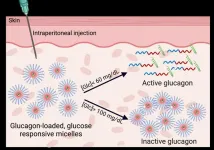Attivare licenses Wyss Institute’s immune-modulating biomaterial technology to advance immunotherapies
The company is developing the biomaterial-based technology to develop novel therapies able to program anti-cancer immunity and prevent infectious diseases
By Benjamin Boettner
(BOSTON) — Today, the Wyss Institute for Biologically Inspired Engineering at Harvard University and Attivare Therapeutics Inc. announced that Attivare has licensed a portfolio of immune-modulating biomaterial technologies from Harvard University that was created at the Wyss Institute, John A. Paulson School of Engineering and Applied Sciences (SEAS), Dana-Farber Cancer Institute, and Massachusetts General Hospital. This technology creates an in vivo training ground for the immune system, enabling it to more effectively fight cancer or prevent infection by pathogens. The license was enabled by Harvard’s Office of Technology Development (OTD) and provides Attivare with the worldwide rights to the portfolio of technologies.
Attivare’s goal is to advance the treatment of diseases with high unmet needs through the development of novel immunostructure-based therapeutics using its AttImmuneTM platform. The platform enables the modular creation of disease-specific immunotherapies able to effectively recruit and reprogram target immune cells in the body of patients through utilizing immune-modulating biomaterial technology invented by the group of David Mooney, Ph.D., Wyss Founding Core Faculty member. Mooney is also the Robert P. Pinkas Family Professor of Bioengineering at SEAS. The team at Attivare, which formed at the Wyss Institute in 2021 and since established company operations in Natick, Mass., is first focusing on solid tumors and heme malignancies that cannot be effectively treated with immunotherapies yet.
“We are excited to leverage the unique immune-stimulatory properties of the AttImmuneTM technology to reverse tumor-induced immunosuppression and reprogram anti-cancer immunity,” said Robert Pierce, M.D., Chief Scientific Officer of Attivare. “We hope to leverage the modular and multivalent nature of the AttImmuneTM platform to bring the benefit of a strong anti-cancer immune response to those patients who are refractory to current immuno-oncology therapies.”
The immune-modulating biomaterial technology is the result of a large body of work performed by Mooney’s academic and translational teams at the Wyss Institute and SEAS. Working with clinical immuno-oncologists at Dana-Farber Cancer Institute, they had advanced biomaterial scaffolds as a new cancer vaccine strategy to activate patients’ immune systems against tumor cells.
The technology licensed to Attivare enables the creation of a 3D scaffold consisting of mesoporous silica rods(MSR) that form a porous cell-permeable structure following their subcutaneous or intratumoral injection through a standard gauge needle. MSRs can be loaded with immune cell-recruiting and activating molecules that are delivered into the scaffold’s closer environment or retained within the scaffold to be locally presented to immune cells. Among those, released cytokine and/or chemokine molecules attract key immune cell types known as antigen-presenting cells, which can then be reprogrammed within the scaffold against specific disease targets using a combination of scaffold-localized antigens and/or immune agonists. Following their activation, the antigen-presenting cells migrate to nearby lymph nodes where they orchestrate a broad T-cell response directed at the targeted cells.
“After developing and shepherding the MSR-based immune-modulating biomaterial technology through an extensive pre-clinical validation process and demonstrating its potential in various in vitro and in vivo studies, it is primed for clinical development,” said Mooney, who leads the Wyss Institute’s Immuno-Materials platform.“Attivare’s expert team is well versed in all aspects of the technology and commercial development, and it will be exciting to see how they advance this novel technology towards patients.”
Mooney is also one of Attivare’s co-founders, along with Attivare CTO Ed Doherty, formerly a Lead Senior Staff Scientist at the Wyss Institute, COO Jessica McDonough, Ph.D., formerly Business Development Director of Entrepreneurship at the Wyss Institute, Associate Director Fernanda Langellotto, Ph.D., a former Staff Scientist at the Wyss Institute, Scientist Benjamin Seiler, formerly a Staff Scientist at the Wyss Institute, and former Wyss Research Associate Chyenne Yeager.
The technology platform’s utility also extends to infectious diseases. In one of its proof-of-concept studies, the Attivare team, while at the Wyss Institute, collaborated with other Wyss researchers, led by Lead Senior Staff Scientist Michael Super, Ph.D. and Wyss Founding Director Donald Ingber, M.D., Ph.D., to develop a new vaccination strategy against sepsis-causing infectious pathogens.
“Launching and potentiating immune responses against cancer cells and pathogens using novel immunomaterials is a relatively new concept that has been significantly advanced by the work in Dave Mooney’s group at the Wyss and SEAS. Bringing this technology to patients who need it the most is a hallmark of the Wyss Institute, and the launch of Attivare is a vital step in that process,” said Ingber, who is also the Judah Folkman Professor of Vascular Biology at Harvard Medical School and Boston Children’s Hospital, and the Hansjörg Wyss Professor of Biologically Inspired Engineering at Harvard School of Engineering and Applied Sciences.
Media contacts
Benjamin Boettner, Ph.D., Wyss Institute, Benjamin.Boettner@wyss.harvard.edu
Kirsten Mabry, Harvard Office of Technology Development, Kirsten_Mabry@harvard.edu
Jessica McDonough, Ph.D, COO, Attivare Therapeutics Inc., J.McDonough@attivaretx.com,
###
The Wyss Institute for Biologically Inspired Engineering at Harvard University (www.wyss.harvard.edu) is a research and development engine for disruptive innovation powered by biologically-inspired engineering with visionary people at its heart. Our mission is to transform healthcare and the environment by developing ground-breaking technologies that emulate the way Nature builds and accelerate their translation into commercial products through formation of startups and corporate partnerships to bring about positive near-term impact in the world. We accomplish this by breaking down the traditional silos of academia and barriers with industry, enabling our world-leading faculty to collaborate creatively across our focus areas of diagnostics, therapeutics, medtech, and sustainability. Our consortium partners encompass the leading academic institutions and hospitals in the Boston area and throughout the world, including Harvard’s Schools of Medicine, Engineering, Arts & Sciences and Design, Beth Israel Deaconess Medical Center, Brigham and Women’s Hospital, Boston Children’s Hospital, Dana–Farber Cancer Institute, Massachusetts General Hospital, the University of Massachusetts Medical School, Spaulding Rehabilitation Hospital, Boston University, Tufts University, Charité – Universitätsmedizin Berlin, University of Zürich, and Massachusetts Institute of Technology.
Harvard’s Office of Technology Development (OTD) promotes the public good by fostering innovation and translating new inventions made at Harvard University into useful products that are available and beneficial to society. Our integrated approach to technology development comprises sponsored research and corporate alliances, intellectual property management, and technology commercialization through venture creation and licensing. More than 100 startups have launched to commercialize Harvard technologies in the past 5 years. To further bridge the academic-industry development gap, Harvard OTD manages the Blavatnik Biomedical Accelerator and jointly oversees the Harvard Grid and the Climate and Sustainability Translational Fund. For more information, please visit https://otd.harvard.edu.
Attivare Therapeutics Inc. (https://attivaretx.com) was established by a team from the Wyss Institute at Harvard to address the challenge of treating tumors with low immunogenicity. We are developing a solution that generates a personalized immune response targeting the patient’s own tumor antigens. We are doing this by advancing the development of the AttImmune platform based on our biomaterial scaffold that can reprogram anti-cancer immunity through generation of a novel immunostructure. In addition, our platform synergizes with standard of care and has applications beyond oncology including the treatment of infectious diseases.
END







